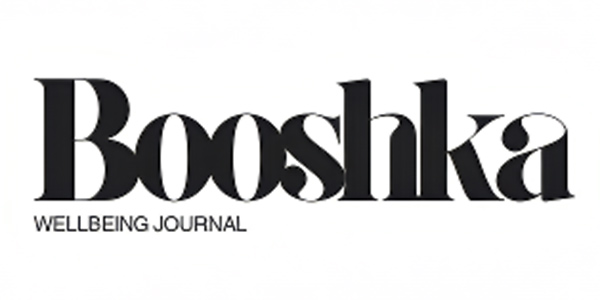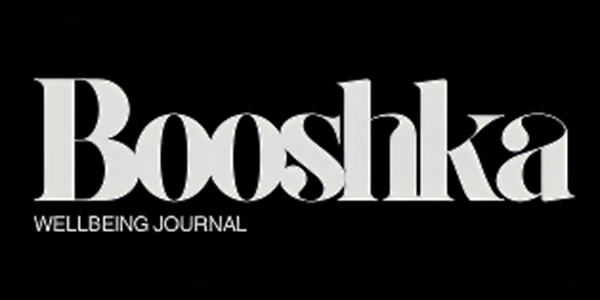Now Reading: Insight to Overload: Navigating the Age of Information
-
01
Insight to Overload: Navigating the Age of Information
- Home
- Health & Wellbeing
- Insight to Overload: Navigating the Age of Information
Insight to Overload: Navigating the Age of Information
BooshkaHealth & Wellbeing1 year ago597 Views

The Age of Information Overload: Protecting Your Focus and Energy
In today’s fast-paced digital world, we are constantly bombarded with information. Social media feeds, 24/7 news updates, emails, and an endless stream of opinions come at us from all directions. It’s nearly impossible to escape the noise. While some of this information can inspire, educate, or entertain us, most of it simply overwhelms and distracts us and as a result take sour energy.
The key to navigating this overwhelming flow of content is remembering one crucial fact, at the end of the day, it’s all just information. How much energy and attention we give it is entirely up to us.
Every time we engage with a piece of news, a social media post, or a notification, we are directing our focus. In a sense, our attention is a currency. And just like spending money, if we’re not mindful of where it goes, we can find ourselves drained emotionally, mentally, and physically.
As Coping Mechanisms Evolve, Unhealthy Patterns Can Take Root
Something that at times can arise in all of us is wanting 100 percent certainty and you cant blame us, it comes from the human need to feel secure and in control, but this constant pursuit can be detrimental. While the desire to “know for sure” offers temporary comfort, it often leads to overthinking, procrastination, and decision paralysis. In reality, very few things in life come with absolute guarantees, and clinging to this need can stifle growth, creativity, and adaptability. When we insist on certainty before taking action, we risk missing opportunities, delaying progress, and developing anxiety when faced with inevitable uncertainties. Embracing ambiguity and learning to act despite incomplete information is often a healthier and more productive approach.
The desire for 100 percent certainty can fuel anxiety, as it keeps us fixated on trying to control outcomes that are often beyond our grasp. This constant need for reassurance creates a mental loop of overanalyzing and second-guessing, leaving us restless and uneasy. However, it’s not until we accept that some things are simply out of our control that we can begin to find peace. Life is inherently unpredictable, and the act of trusting, whether in ourselves, others, or the natural flow of events, allows us to let go of the need to micromanage every detail. By releasing this tight grip, we open ourselves to possibilities, surprises, and lessons that only come when we allow life to unfold as it’s meant to. Trusting the process doesn’t mean abandoning responsibility, it means finding balance in taking action and letting life play out in its own way.
How Our Perceptions of Information Change Over Time
As we journey through life, our experiences and perspectives evolve. Something we once believed to be true may later seem misguided, and vice versa. This dynamic process shapes how we interpret the endless flow of information and highlights the importance of remaining adaptable.
One consequence of the information age is the strain it can put on relationships. From differing views on current events to debates over theories that may one day turn out to be true, friends and families often find themselves at odds. The speed and reach of information today, accurate or not, have created echo chambers and heightened emotional responses, making it easier to feel divided. At the heart of these conflicts lies fear, which is often the root of unreasonable behavior. When someone comes from a place of fear, their reactions and decisions may not always align with logic or reason. This fear can stem from a variety of sources such as, fear of change, fear of being wrong, or fear of the unknown. For many, acknowledging a different perspective or confronting a truth that challenges their deeply held beliefs can feel like questioning the very foundation of their existence and some cases this is too much to bear.
In these moments, it’s important to understand that people are often only capable of accepting what feels safe or familiar to them. Facing a truth that contradicts their worldview can be overwhelming, even paralyzing. This isn’t necessarily a sign of willful ignorance, it can be a psychological defense mechanism. For some, it’s easier to cling to what they believe than to confront the discomfort of re-evaluating their entire reality.
To navigate these strained dynamics, empathy is key. Recognizing that everyone’s beliefs are shaped by their unique life experiences can create space for understanding. We’re all shaped by the environments we grew up in, the communities we engage with, and the information we consume. These factors create the lens through which we view the world. By acknowledging this, we can begin to approach disagreements not as battles to win but as opportunities to understand and connect.
This doesn’t mean condoning harmful beliefs or behavior but rather accepting that some people may not yet be ready or able to step outside their perspective. Patience, compassion, and clear boundaries are essential. While you can’t force someone to see things differently, you can choose how you respond, whether that’s through gentle dialogue, leading by example, or accepting that some conversations might need to wait for another time (or may never happen).
The information age has brought us closer in some ways and divided us in others, but it also offers a chance to practice deeper empathy. By understanding that fear often underpins unreasonable actions, we can better navigate conflicts with grace. After all, the goal isn’t always to change someone’s mind but to keep the door open for connection, even when you stand on opposite sides of an issue.
Balancing Awareness with Personal Goals
Staying informed is important, but there’s a fine line between awareness and distraction. Make it a priority to focus on information that directly supports your values and aspirations while limiting exposure to content that pulls you away from your purpose.
Protecting Your Mental and Emotional Energy
Your energy is finite. Consuming excessive amounts of information, even if it feels relevant, it can lead to burnout. Set boundaries, and prioritize your mental health by stepping back from overwhelming feeds and news cycles.
Practical Steps to Limit Information Overload
Set specific times for checking emails and messages: This helps reduce constant distractions and minimizes the pressure of staying on top of everything in real-time.
Declutter your digital space: Unsubscribe from newsletters or services you no longer need, and organize your files and apps to create a more streamlined digital experience.
Create content-free zones: Designate certain areas of your home or workspace where no digital devices are allowed, fostering a more peaceful, distraction-free environment.
Limit your news consumption: Set boundaries around the amount of news you consume each day to avoid the anxiety that often comes with constant updates.
Practice deep work: Dedicate blocks of time to uninterrupted focus on a single task, helping you reduce the mental clutter that comes from multitasking.
Adopt a digital detox day or weekend: Regularly schedule a full day or weekend without technology to reset and recharge.
Filter your notifications: Turn off non-essential app notifications to prevent constant disruptions.
Simplify your decision-making process: Reduce the number of small decisions you need to make each day to avoid decision fatigue, such as meal prepping or setting out clothes the night before.
Cultivate hobbies or activities that don’t involve screens: Engage in offline activities like reading, exercising, or creating art to give your mind a break.
Reconnecting with Your True Path
At the end of the day, the most important question to ask yourself is: Are you living your life or someone else’s? Your goals, your dreams, and the life you envision for yourself—they’re yours and yours alone. Never forget that you have the power to shape your path. Sure, the noise of the world can be overwhelming, but you’ve got the strength to filter it out and focus on what truly matters. Keep your eye on the prize, trust your instincts, and remember that every step forward is a victory. You’re not just navigating through life—you’re creating it. Stay the course, because the best is yet to come.
Feeling overwhelmed, stressed, or like you just can’t think straight? You’re not alone. Sometimes life can feel like it’s moving too fast, and it’s easy to get caught in a spiral. But there’s a way out. Check out our 10-step process to help you regain clarity, reduce stress, and feel great again. Take the first step towards a calmer, more focused you.
- AI revolution
- big data
- connected world
- cyber culture
- data overload
- data revolution
- digital era
- digital landscape
- digital networks
- digital overload
- digital transformation
- global communication
- global connectivity
- global tech
- information access
- information age
- information challenges
- information economy
- information revolution
- information society
- internet age
- internet culture
- knowledge economy
- knowledge sharing
- modern connectivity
- social media impact
- tech disruption
- tech evolution
- tech-driven world
- technology trends





























